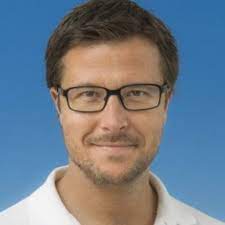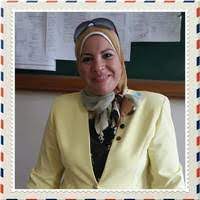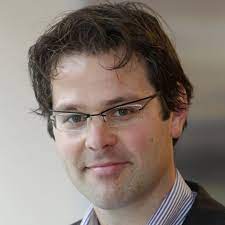Scientific Program
Keynote Session:
Title: DIFFERENT INSERTION TECHNIQUES OF SUBCLAVIAN CENTRAL LINES, DRIVEN BY POCUS
Biography:
Philipp Willingshofer has received his medical doctorate from the Medical Univesity in Graz in 2008. After having had worked in the Emergency Departement in Washington D.C., USA, he did his residency in Anaesthesia and Critical Care in Austria. During this time he was granted the “Trainee Exchange Programme” award of the European society of Anaesthesiology and was therefore able to do an internship in cardiac anaesthsia at the Royal Papworth Hospital in Cambridge, UK. He finished his residency in 2015 and received the European Diploma in Anaesthesia and Critical Care (EDAIC) and the European Diploma in Intensive Care Medicine (EDIC) in 2016 and 2019. He is therefore certified by the European Society of Anaesthesiology (ESA) and the European Society of Intensive Care Medicine (ESICM).
Abstract:
The insertion technique of subclavian central lines has seen some variations since it`s early description. Many of these changes resulted from the increasingly popular use of POCUS (point of care ultrasound). My talk, at the 2020 International Conference on Critical Care and Emergency Medicine in Dubai, aims to give an overview over the different methods of subclavian central line insertion. It will cover the variations when using landmark based techniques, as well as ultrasound guided supraclavicular and infraclavicular approaches and the ultrasound based “PART” technique. It will conclude with an ultrasound-only way to confirm the correct position of central lines.
Title: SAUDI NURSING STUDENTS ATTITUDES TOWARDS PATIENT SAFETY AND THE INFLUENCING FACTORS: A QUANTITATIVE AND QUALITATIVE STUDY AT THE COLLEGE OF NURSING-JEDDAH
Biography:
Ebtsam Aly Abou Hashish has completed her PhD in the Faculty of Nursing at Alexandria University, Egypt. She is an Assistant Professor of Nursing Management and Leadership in College of Nursing at King Saud bin Abdul-Aziz University for Health Sciences, Jeddah, KSA, and an Assistant Professor of Nursing Administration in the Faculty of Nursing at Alexandria University, Egypt. She teaches many management and ethics courses for undergraduates and post graduates and as well as participated in supervising many theses and dissertations as an academic supervisor. She also acts as an Associated Trainer in the Faculty and Leadership Development Center (FLDC). She has published more than 15 papers in reputed journals and has been serving as an Editorial Board Member and Reviewer of reputed journals.
Abstract:
Background: Patient safety becomes a challenging discipline in educational institutions and healthcare organizations. With this growing recognition of the significance of patient safety, it is essential to assess nursing students’ attitude towards patient safety and factors influencing patient safety in order to reduce potential errors and promote quality of care.
Purpose: The main aim of this study was to assess the attitudes of undergraduate nursing students towards patient safety at the College of Nursing-Jeddah. Further, to identify the factors those influence their attitude towards patient safety.
Methods: Mixed methods research was conducted with a concurrent triangulation design. Attitude towards patient safety questionnaire was developed by the researchers and given to all undergraduate nursing students(N=300) who enrolled in the academic year 2017-2018 to collect quantitative data, while a qualitative investigation guided by in-depth interview using a developed guide was conducted with a purposive sampling of 14 undergraduate nursing students to identify the factors influencing nursing students’ attitude towards patient safety. Appropriate statistical analysis was applied while qualitative data were analyzed by content analysis approach.
Result: The present study concluded that Saudi nursing students manifested high and positive attitude level towards patient safety and indicated that their attitude not affected by the academic level or learning experience. Teaching patient safety issues, team functioning and patient involvement and perceived importance of patient safety scored as the highest dimensions of students’ attitude compared to the error disclosure and management dimensions which rated lower. Students’ attitude towards patient safety was influenced by many factors which extracted from qualitative data content analysis and identified as facilitators or barriers. These factors were thematically categorized as patient factors, staff factors and work environment factors with 25 subfactors under these three themes.
Conclusions & Recommendation: Nursing students are challenged by various factors that influence their attitude towards patient safety. Therefore, they should be supported by the provision of educational training about safe practice to enhance their safety attitude, knowledge and practice. Error reporting and disclosure culture should be a norm in nursing education and health care environment. Therefore, students should participate in the process of error analysis and management and should be provided with adequate clinical supervision. To maintain high levels of quality and safety in healthcare, all schools of nursing and faculties have to revise their curricula with more emphasis on theoretical and practical aspects of patient safety for bridging theory-practice gap. Furthermore, compliance to safety regulations and policies, blame-free environment for errors reporting, providing enough facilities and equipment, sufficient and efficient personnel by the hospital administrators are necessary so, students can practice in a safe environment and promote patient safety. In addition, this study encourages further research to achieve a more explicit understanding and comprehensive view of the factors that affect patient safety particularly from nurse educators’ perspective.
Title: LEARNING TO LEARN: AN EXPLORATION OF THE EXPERIENCE OF OVERSEAS NURSES UNDERTAKING HIGHER EDUCATION IN THE UNITED KINGDOM (UK)
Biography:
Michelle currently works a City, University of London as the Programme Director: Mentorship : Supporting & Assessing Learning in Practice Settings and Practice Lead for Adult nursing students. Michelle has previously worked as a Senior Lecturer at Buckinghamshire New University and Kingston University & St Georges University, London. This followed a successful nursing career as a District Nursing Sister and as an Intermediate Care Nurse. Michelle has taught a range of subjects latterly with a focus on Public Health, Culture & Diversity in Healthcare, Professional Nursing and Management of Long term conditions.Michelle has a MSc in Medical Anthropology and has a keen interest in culture, expressions of illness and how nurses cope with this. Michelle is currently in the final phase of her PhD exploring the experiences of Indian nurses coming to the UK to study and work.Michelle has an MSc Medical Anthropology
Abstract:
The consensus exists that nursing is a global profession where much emphasis is placed on the transference of skills and knowledge. In reality the situation is more complex as each society attributes its own cultural constructs onto what is meant by the term nurse and how a nurse should be educated. This presentation will detail aspects of an ethnographic study exploring the lived experience of Indian Nurses who have undertaken programmes of study in the United Kingdom (UK). It will also draw an experience of teaching nurses whose primary education was not in the UK. Existing research examines the impact on the nurse as they enter the work force but there is a dearth of literature available on the experience of overseas nurses’ experience of a UK based education. The study has revealed that the concept of ‘learning to learn’ is paramount in the delivery and success of overseas nurses undertaking an education programme away from their home country. The Indian nurses’ previous experience of didactic rote learning has little bearing on the ethos of a UK education with the emphasis on independent and reflective learning. The expectation is often on the overseas nurse to adapt their learning style to suit the institute they are attending. However the study has revealed the same should be said of the institute. In order to bridge this gap cultural sensitivity needs to be employed in the delivery of teaching and this should be a two way process between the institute and the overseas nurse with an emphasis on cultural competence, adaptation and partnership learning.
Title: HOW COULD TECHNOLOGIES HELP TO IMPROVE CARE AND ENHANCE NURSING JOY?
Biography:
Dirk F de Korne is currently the Deputy Director, Medical Innovation & Care Transformation at KK Women’s & Children’s Hospital (KKH). He also holds a position as Adjunct Assistant Professor at Duke-NUS Medical School Singapore and Erasmus School of Health Policy and Management, Erasmus University Rotterdam, Netherlands. In KKH, he is responsible for the hospitals’ overall innovation strategy and execution, including the alignment and facilitaiton of initatives and projects pertaining to cross-departments, multi-disciplinary collaborations towards patient service integration with relevent stakeholders.
Since 2003, he has focused on quality improvement and organizational strategy in hospital care. His implementation, research, and teaching work focusses on understanding the diffusion of quality and patient safety innovations and include business process and systems design, telehealth, human factors & ergonomics, and performance benchmarking. Before his move to Singapore in 2013, he worked as Quality & Safety Consultant at The Rotterdam Eye Hospital. As lecturer he has been teaching health care quality and organizational sciences as well supervised bachelor and master graduates. He holds a MSc in Health Policy & Management from Erasmus University Rotterdam and a PhD in Public Health from University of Amsterdam
Abstract:
Today’s hospitals are rich and complex socio-technical environments where technology and human actions are closely interwoven and patient’s health outcomes are co-dependent on the success of this interaction. Moreover, it is increasingly recognized that the patient journey takes mostly place outside of the hospital. As medical and nursing care becomes more technology-dependent, many fear that sensors, robotics, digitalization, machine learning and artificial intelligence will take the humanity out of health care. Do we need to worry? In this session, it is argued how ‘high tech’ can perform repetitive and redundant activities to enable nursing and medical staff to focus on ‘high touch’. Examples are taken from various area’s of women’s and children’s care, including smart health video consultation, pregancy chatbots, and real-time notifications for hand hygiene performance. If applied properly, new technologies could optimize patient health outcomes while enhancing nursing joy and career perspectives.





